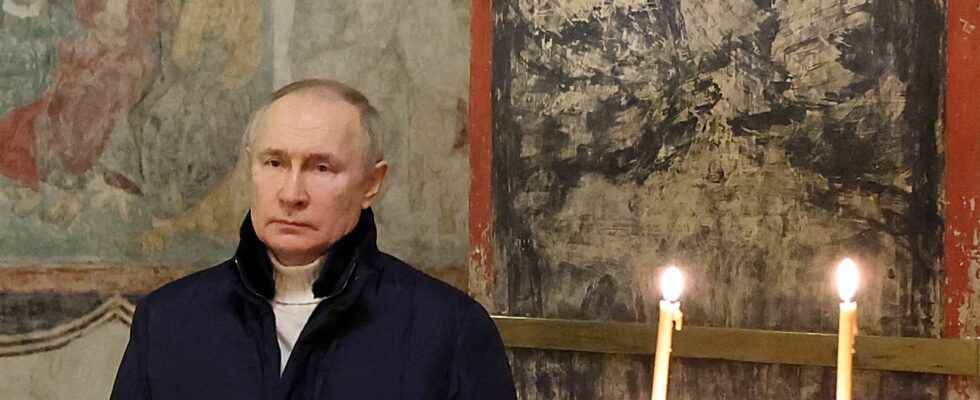Since the start of the Russian invasion on February 24, 2022, the Russian Orthodox Church embodied by its leader, Patriarch Kirill, has openly supported Vladimir Putin’s war in the name of the fight against Ukrainians and Westerners, described as “Satanists”. A constant for the Russian clergy, which has always legitimized the actions of the Kremlin, explains Leonid Sévastianov, president of this Orthodox movement which, in the 17th century, had refused a liturgical reform inspired by the Tsar. Persecuted and, for the most part, forced into exile, the Old Believers have since that time cultivated a distrustful distance from the Russian state.
L’Express: Today, the Orthodox Church supports the war in Ukraine by calling Ukrainians and Westerners satanists. What do you think ?
Leonid Sevastyanov: The Orthodox Church behaves like a propagandist for the Kremlin and tries to “demonize” its enemies as it has always done. But I don’t think it resonates very much. The Church leads a very active propaganda, but that does not say much to the population. Russians are very secularized. When told that kyiv is the mother of Russian cities and that Prince Vladimir was baptized there, that means nothing to 95% of the population.
Would you say that the Russian Orthodox Church is at the service of the Kremlin?
The official Russian Church has always been linked to the state and its ideology. She supported the introduction of slavery in the country by explaining to the people that serving and submitting was good. She supported all his wars by declaring his enemies heretics. She supports the war in Ukraine, as she supported the war in Syria and all the previous ones.
In exchange, it receives financial support from the State, but also political support: the State legitimizes the official Church, it decrees that it is the true Church and that the others are false, which is the “true “bishop and who is the schismatic… It is an exchange of courtesies. The church serves the state and the state supports the church.
The Kremlin ostensibly pushes a conservative and religious agenda, but Russian elites fall far short of these values, like the president, who is divorced and has out-of-wedlock children. What to think, in these conditions, of their commitment?
These people are clearly not religious. In any case, they are not Christians. But they have a spirituality, a mixture of astrology, superstitions and various religions… For them, the Patriarch is rather a kind of mystical figure, like a shaman or an oracle. As for Kirill, he himself is part of the nomenklatura. Among these people, one does not bother with real faith, the only thing that counts is to give the appearance of faith.
Kirill is said to have been linked to the KGB during the Soviet era. Is that the case ?
What is certain is that in Soviet times, one could not become a priest or a bishop without the approval of the secret services. Anyone who had a religious career during the Soviet era therefore necessarily had links with the KGB. Moreover, it is the same for the Ukrainian Church.
But doesn’t this proximity between the Church and the government risk ultimately discrediting the Church in the eyes of the Russians?
These people are convinced that they can adapt to any power. They served the Tsars, Stalin, Yeltsin, Putin… The less democratic society is, the more power needs to be sacralized, and the more it needs the Church to legitimize itself. Democracy therefore goes completely against the interests of the Orthodox Church. The ideal for them is the Russia of the 19th century, in which the State imposes religion on daily life. The religious hierarchy considers that only collaboration with the state can assure it a dominant position. We have clearly seen over the past thirty years that their real influence is minimal. They can only influence society by relying on the state, as in the time of the Empire.
Could the community of Old Believers advance the cause of peace?
I’m trying to make sure there can be peace talks in the Vatican. I speak regularly to Pope Francis and to the Russian authorities to move this project forward. I think the Vatican, with its neutrality, would be a good intermediary. But at the moment, neither Russia nor Ukraine nor Europe are interested in peace. Everyone thinks they can win the war. As long as this is the case, there can be no negotiations.
